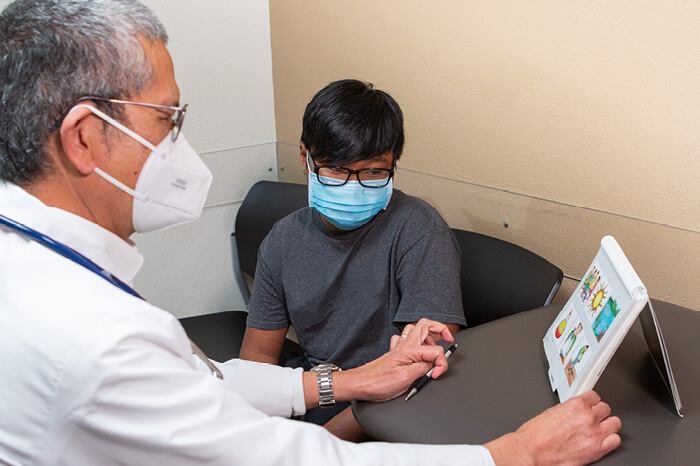When children struggle in school – whether academically, behaviorally, or both – parents often consider it a phase their child might outgrow. But if the child has a learning disorder, failure to diagnose and treat the condition can lead to problems at every stage of life.
TrueCare’s Academic Success Program (ASP) gives children with learning disabilities a brighter future by identifying underlying causes. For school-aged children, it also may help them get placed in an individualized education program (IEP) or 504 plan (see additional information at end of blog). Offered by all public and some private schools, IEPs and 504 Plans ensure that children with identified disabilities receive the specialized instruction and related services they need to succeed in the classroom.
Many parents don’t know the signs of learning problems or where to get help. TrueCare breaks down these barriers for children, parents, and teachers who live and work in the North County San Diego communities to ensure they get the support they need.
What Is TrueCare’s Academic Success Program?
TrueCare’s Academic Success Program is a special pediatric service that identifies any issues related to a child’s development, especially when it comes to kids who are struggling in school. The efficient testing process identifies possible disorders or other problems that may impact a child’s learning. TrueCare doctors perform these assessments at TrueCare’s Oceanside and San Marcos health centers, where they use state-of-the-art tools to uncover the issue and recommend a plan for improvement. The program is open to any parent or guardian concerned about their child’s development. Evaluations can begin with kids starting at 4 years old and can be done through high school age. Younger kids are seen by recommendation of their provider.
TrueCare has been offering the ASP program for several years at our San Marcos health center, led by Dr. Posadas, who founded the program. As part of TrueCare’s commitment to making health care more accessible, the program expanded to Oceanside in 2022.
Not sure how to choose the best pediatrician for you and your family? Learn more about what they do and why they are important here.
Get Your Child Assessed Quickly and Affordably with TrueCare
Getting a school-aged, learning-disabled child diagnosed and enrolled in an IEP can be a time-consuming and costly process, especially if you use a private provider for the assessment and treatment plan. Most school districts will work with you to get your child enrolled, but it can be overwhelming and take months to complete the process.
TrueCare’s ASP program makes it easy, fast, and affordable to have your child assessed. Once the forms, appointments and observations are complete, our providers create a comprehensive treatment plan and deliver the necessary documentation needed to bring back to your child’s school to start the IEP process. With two TrueCare locations now offering ASP testing, parents and guardians can get scheduled for the appointment and receive the assessment results quickly.
How to Get Your Child Assessed for a Learning Disability
You may have concerns about your child’s performance in school, or your child’s teacher or caregiver may see some symptoms. In some cases, your pediatrician may refer your child for an assessment based on observations made during a well or sick checkup.
Parents concerned about their child can start the process by contacting TrueCare for an appointment with their child’s provider. New patients will be scheduled with an available pediatrician.
Once the evaluation is scheduled, the process consists of:
- Prework. Prior to the first visit, the child’s parent or guardian must fill out the required forms supplied by TrueCare. It is highly recommended that your child’s teacher or caregiver fill out a form about the child as well. Once the forms are submitted, TrueCare doctors review the responses.
- The first appointment. A TrueCare board-certified physician will spend 40 minutes with the parent/guardian to discuss the child’s behavior. During this time, a trained TrueCare medical assistant performs a cognitive assessment with the child or teen. This evaluation is conducted using testing and assessment tools that are the gold standard in the industry.
- The diagnosis. After the appointment, our doctor files a report of the diagnosis, which can include attention-deficit/hyperactivity disorder (ADHD), autism, dyslexia, or other intellectual disability. As the parent or guardian, you will receive copies of all reports detailing the testing and evaluation.
Why Choose TrueCare for Learning Disability Assessment
TrueCare offers what no other community health center can – a highly professional and robust program for assessing learning disorders intended to quickly set your child on the path to success.
Our ASP doctors are bilingual, so you and your child can feel comfortable speaking in your native language throughout the process. And you can take advantage of our many pediatric care services all under one roof.
As a parent, early detection could be one of the most important steps you take to prepare your child for the future. If you have any concerns about your child’s ability to learn or follow instructions in school, TrueCare will help you get started on the road to academic achievement and lifelong well-being.
Call or text us today at (760) 736-6767 for an appointment with your child’s provider. New patients are also welcome and will be scheduled with an available pediatrician!
IEP and 504 Plan Q&A
What is an Individualized Education Program (IEP)?
An IEP is a program that ensures children with a diagnosed disability receive specialized instruction and related services while attending elementary or secondary public schools. It is typically developed by experienced educators from different disciplines, the child and the child’s parents/guardians, and designated advocates. Once enrolled in an IEP, children are usually moved to a smaller group learning room where the tailored learning experience allows them to learn at their own pace.
In addition to the specialized curriculum, IEP programs include all related services disabled children are qualified to receive. The school establishes annual goals for the child’s education and monitors his or her progress with the general curriculum. The program also includes educational accommodations appropriate to the child’s current level to help them succeed academically.
What is a 504 Plan?
A 504 Plan provides a blueprint for schools to support students with disabilities, remove barriers to learning, and ensure equal access in the classroom. Unlike IEPs, which address 14 specific disabilities, 504 Plans cover students with any type of disability, and differ from IEPs in many ways. However, both have the same goal – helping students thrive in school.
Learn about the difference between IEPs and 504 plans.
These differences play an important role in determining which option is better for your child. For example, it’s typically easier to receive a 504 plan, but it doesn’t offer the same legal protections of an IEP. A 504 Plan is considered a better option when the student can function well in a regular education environment with accommodations. IEPs provide are a better fit for students with a disability that adversely impacts their educational development and who can benefit from the related services and supports.
Which option – IEP or 504 plan – is better for your child? Read more here.
Are IEPs and 504 Plans Offered in All Schools?
Federal law requires school districts to offer special education to all qualified children who attend public schools in their service areas. This includes providing each learning-disabled child with an IEP tailored to his or her learning challenges. Because public schools receive funding from the government, they do not charge for IEPs or related services.
504 Plans are covered by Section 504 of the Rehabilitation Act of 1973, a federal anti-discrimination law that protects people with disabilities of all ages. Section 504 prohibits any program or activity that receives federal money from discriminating against individuals with disabilities. Public school districts and charter schools receive federal funds and therefore must comply with Section 504 to ensure students with disabilities receive equal access to their programs.
Private schools do not receive funding from the government and are not required to provide special education services to children with disabilities. Some private schools do provide learning disability services to students, however children with disabilities who attend private schools are not afforded the same rights as those enrolled in public schools.
TrueCare provides a number of health services for children, adults, and the elderly, including wellness checks. Our providers are committed to quality comprehensive care with heart. Contact your local TrueCare health center today to set up your appointment to improve your heart health.
Resources:
>> National Institute of Child Health and Human Development (NIH)
>> Understood.org
>> Schoolpsychologistfiles.com
DISCLAIMER: THIS WEBSITE DOES NOT PROVIDE MEDICAL ADVICE
The information, including but not limited to, text, graphics, images, and other material contained on this website are for informational purposes only. No material on this site is intended to be a substitute for professional medical advice, diagnosis, or treatment. Always seek the advice of your physician or other qualified health care with any questions you may have regarding a medical condition or treatment and before undertaking a new health care regimen, and never disregard professional medical advice or delay in seeking it because of something you read on this website.





